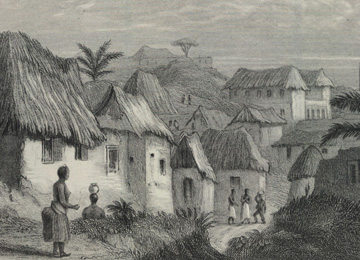Ottabah Cugoano circa 1757 — after 1787

Ottobah Cugoano was an African-born abolitionist who rose to prominence after gaining his freedom in England. Cugoano was born around 1757 in present-day Ghana. His family was politically well connected, but that fact did not prevent Cugoano’s capture outside his village when he was about thirteen years old. He was sold into the transatlantic slave trade and was taken to Grenada in the southern Caribbean before being relocated in 1772 to London by a new owner.
Cugoano arrived in London at the time that the 1772 Somerset case decision expressed some legal protections for enslaved Africans who had been taken to Great Britain. He was baptized the following year under the name “John Stuart.” Cugoano—or Stuart—began to embrace and express a radical abolitionist attitude. While others (including his friend Olaudah Equiano) argued for the need to end the transatlantic slave trade, few suggested ending slavery as a whole.
Cugoano, however, did just that, demanding that Britain cleanse its empire of slavery. He published several pieces about his thoughts on and experiences in slavery, most notably the 1787 piece, Thoughts and Sentiments on the Evil and Wicked Traffic of the Slavery. Cugoano argued that slavery was morally wrong and incompatible with British culture. He also suggested that enslaved Africans were morally justified in rebellion or resistance to their captors and owners. Cugoano promoted his own abolitionist work and that of Equiano and became active in the cause of helping London’s Black Poor. Little is known about Ottobah Cugoano’s life or fate after 1787.







